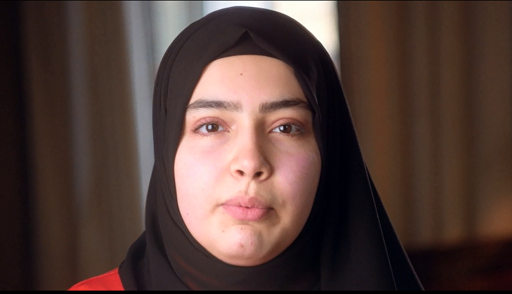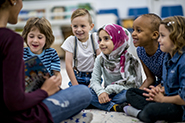4 An education for life and employment
The Religion and Worldviews proposal is a potential container for bringing forward discussions which can aid community cohesion, teaching productive dialogue across different beliefs and backgrounds.
There is no need for complete coherence or agreement about the terms ‘religion’, ‘worldview’ or what should be taught within Religious Education. In fact, learning to work with contested concepts, and dialogue with people’s deeply held sense of identity, is one of the most important aspects of high-quality Religious Education. It also teaches skills that are in high demand in our twenty-first century economy.
Activity 3
Do you think that RE teaches important skills that will help students get jobs and have successful lives after school? Have a look at the following video – do any of the testimonials surprise you?

Transcript: My future. My career. My RE.
[MUSIC PLAYING]
Discussion
The services sector makes up 80% of the UK economy, and this is only expected to grow in the future. Good quality RE in schools can be a vital preparation for jobs in all sorts of areas including the NHS; the civil service; youth and social work, advertising, investment and banking, law, politics, business, the creative industries, the charity sector and NGOs, publishing and journalism, and education (Robertson et al., 2021).
Developing highly valued skills for employment is also true for university students who study Theology & Religious Studies (TRS) or related subjects like Religion, Philosophy & Ethics. Those with degrees in these fields are highly employable; there are a selection of testimonials from recent graduates on the TRS(UK) website [Tip: hold Ctrl and click a link to open it in a new tab. (Hide tip)] (open the tab in a new window or tab so you can easily come back to the course).
In our rapidly changing world, skills of understanding and communicating are becoming ever more essential and valuable in the workplace. While some aspects of employment are becoming animated by artificial intelligence, the need for critical thinking and making educated and sensitive moral judgement remains with each individual. These are the skills that high quality Religious Education in schools prepares its pupils to apply outside of the classroom.

